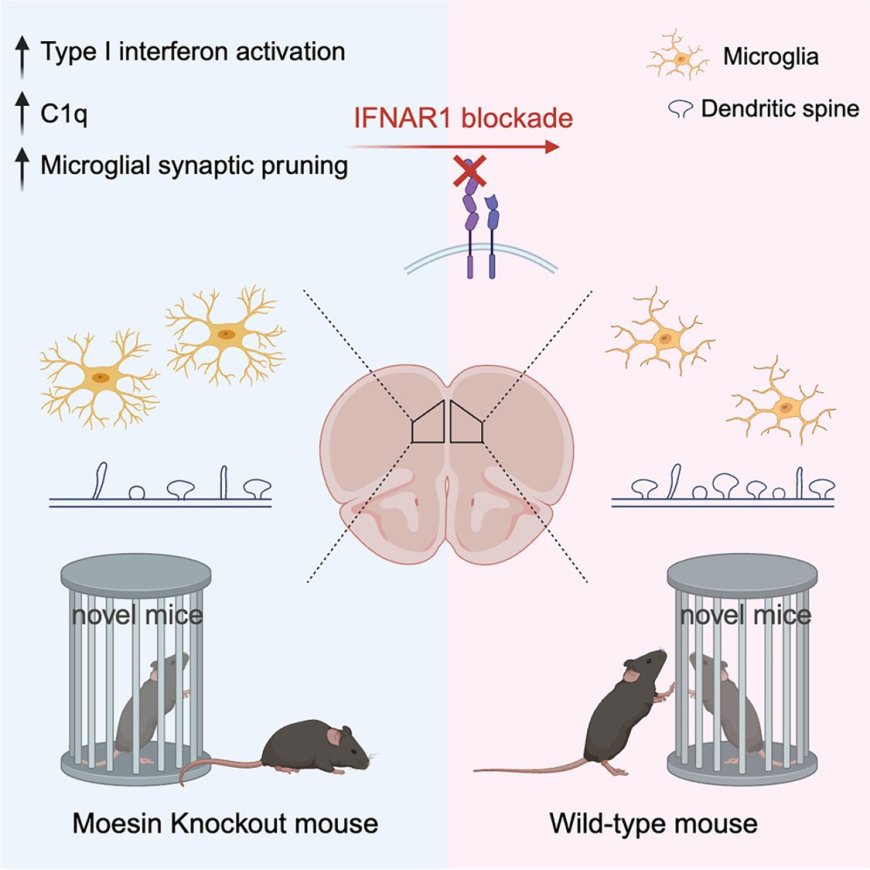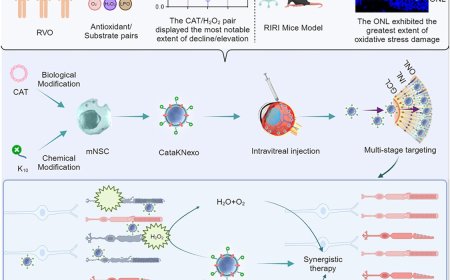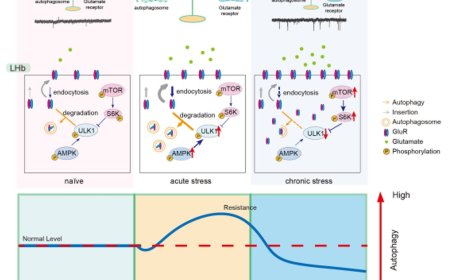Moesin knockout leads to impairs social novelty in a mouse model

A noncoding antisense RNA designated as MSNP1AS (Moesin pseudogene 1, antisense) has been implicated in autism spectrum disorders (ASDs) using genome-wide association studies (GWASs).
MSNP1AS binds to and downregulates the Moesin (Msn) transcript and is highly overexpressed in the postmortem cerebral cortex of individuals with ASDs but the mechanistic link between Msn loss in vivo and ASD-related phenotypic traits remains unclear.
The researchers report that the knockout of the autism-risk gene, MOESIN, from male mice leads to social deficits and repetitive behaviors.
Mechanistic studies suggest the possible involvement of microglial hyperactivation and synaptic phagocytosis, impairing cortical transmission.
The authors show that Msn KO activates the microglial population, leading to aberrant C1q-dependent synaptic pruning followed by synaptic deficits in the medial prefrontal cortex and can be rescued by IFNAR1 antibody, which rescues microglial abnormalities and social deficits.
https://www.cell.com/cell-reports/fulltext/S2211-1247(25)00783-1












